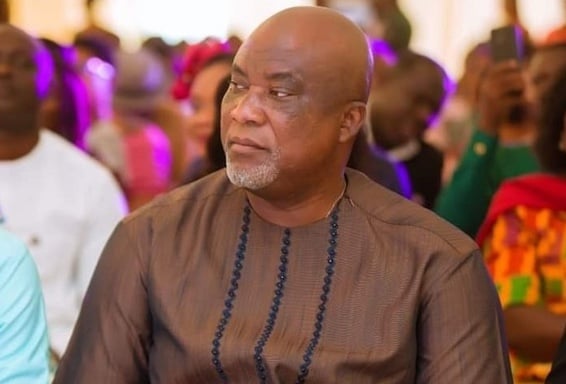Hopeson Adorye, a prominent figure formerly associated with the New Patriotic Party (NPP) and now a key player in the Movement for Change, has expressed his profound disappointment and hurt following his expulsion from the NPP. In a candid interview, Adorye articulated the emotional impact of the party’s decision, emphasizing the years of dedicated service he rendered towards the NPP’s growth and electoral successes. His dismissal, he asserted, was not only unexpected but also deeply painful, especially considering his unwavering commitment to the party. He acknowledged a sense of bitterness regarding the situation, highlighting the hypocrisy of denying the emotional toll such a significant event would take. This expulsion marks a stark turning point in Adorye’s political journey and underscores the ongoing tensions between the established NPP and breakaway factions like the Movement for Change.
Adorye’s expulsion stemmed from his open support for Alan Kyerematen and the Movement for Change, following Kyerematen’s decision to pursue an independent presidential bid. The NPP justified the expulsion citing disloyalty and anti-party conduct. This expulsion, however, was not an isolated incident. It was part of a larger purge within the NPP, targeting several high-profile figures who openly aligned themselves with Kyerematen’s independent ambitions. This wave of expulsions highlights the internal struggles within the NPP as it navigates the changing political landscape and grapples with dissenting voices within its ranks. The party’s decision to expel prominent members underscores the seriousness with which it views any perceived threat to its unity and electoral prospects.
Adding insult to injury, Adorye revealed that the NPP failed to formally inform him of his expulsion. He learned about his dismissal through public channels, a detail that further fueled his sense of hurt and disrespect. This lack of formal communication, he argued, underscored a lack of proper procedure and respect for a long-serving member of the party. He emphasized that the manner in which the expulsion was handled exacerbated the emotional distress and left him feeling undervalued and disregarded. This perceived lack of due process serves as a focal point of his discontent and highlights a breakdown in communication and mutual respect between the party and its former stalwart.
When questioned about the possibility of rejoining the NPP, Adorye remained noncommittal, neither confirming nor denying a potential return. His ambiguous response can be interpreted as a reflection of the complex emotions he harbors towards the party. While deeply hurt by the expulsion, he may not have entirely closed the door on a future reconciliation. However, he made it clear that the manner of his dismissal has left a lasting impact, creating a significant obstacle to any immediate reconciliation. This cautious stance reflects the delicate balance he must strike as he navigates his future political trajectory.
Adorye’s predicament highlights the broader political dynamics at play within Ghana’s political landscape. The emergence of the Movement for Change and Kyerematen’s independent candidacy signify a fragmentation of the political scene. These developments pose a challenge to the established parties, including the NPP, and necessitate strategic responses to maintain party unity and electoral viability. The expulsions can be seen as a tactical move by the NPP to consolidate its base and project an image of strength and unity in the face of these challenges.
The ongoing tension between the NPP and former members like Adorye who have aligned themselves with the Movement for Change reflects a wider struggle for political influence and power. The upcoming elections will likely be a critical test of the NPP’s ability to maintain its dominance in the face of these new political forces. Adorye’s experience serves as a microcosm of the larger political realignments taking place within Ghana, underscoring the complexities of party loyalty, individual ambition, and the evolving dynamics of political power. The ramifications of these political shifts remain to be seen as the country prepares for the upcoming elections. The outcome of the elections will undoubtedly shape the future political landscape and determine the fate of both established parties and emerging political movements like the Movement for Change.


